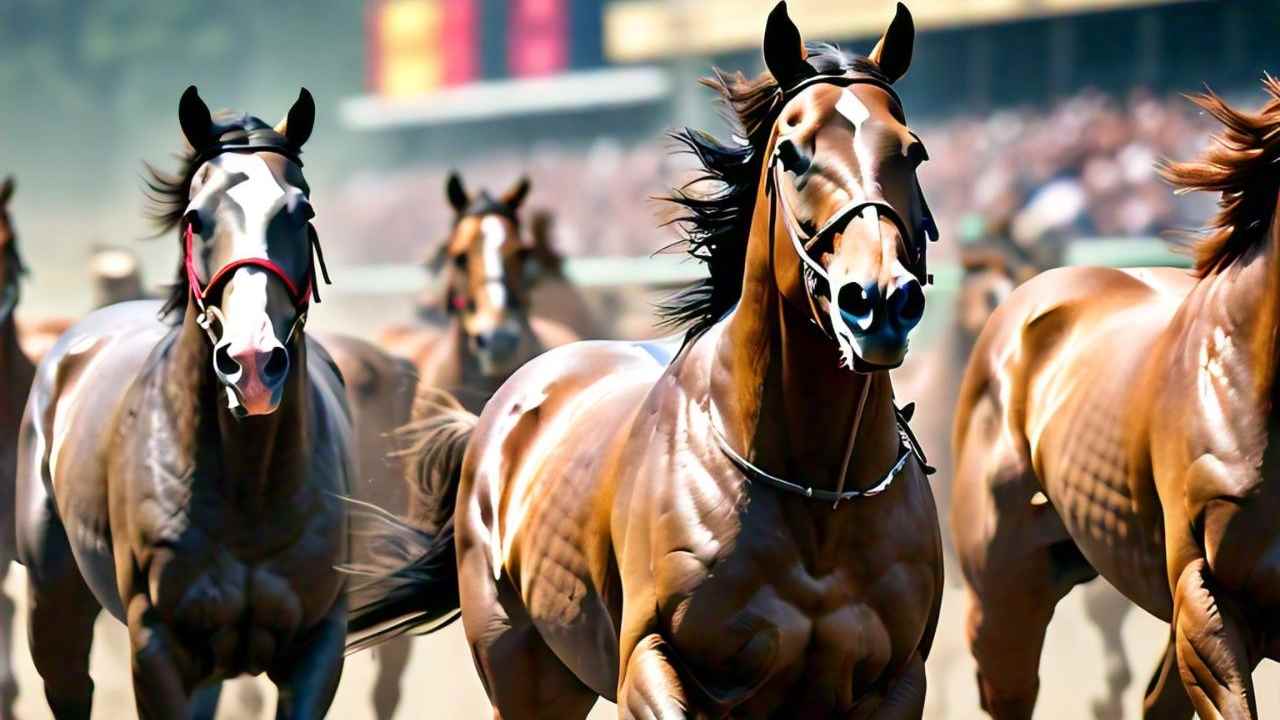Introduction
Horses have enchanted humans for ages, admired for their elegance and strength. Beyond their beauty, these animals possess remarkable traits that set them apart. In this article, we’ll explore ten fascinating facts about horses, showcasing their intelligence, adaptability, and the deep bonds they form with us.
Horses Can Sleep While Standing
One of the most remarkable features of horses is their ability to sleep while standing up. Thanks to a special mechanism in their legs known as the “stay apparatus,” horses can lock their joints in place, allowing them to rest without falling over. This adaptation helps them stay alert to potential dangers in their surroundings. Although they can lie down for deeper sleep, their ability to snooze on their feet is crucial for survival in the wild.
Horses Have Incredible Memories
Horses possess remarkable memories that rival those of elephants. They can remember familiar people, places, and experiences for years, which helps them build strong relationships with humans. This impressive memory also aids horses in adjusting to new environments, making their interactions with caretakers even more meaningful.
You Can Tell a Horse’s Age by Its Teeth
You can estimate a horse’s age by analyzing its teeth. As horses age, their teeth change shape and wear down. Experienced handlers and veterinarians can assess these dental features to estimate a horse’s age. This information is vital for providing appropriate care, especially for horses with unknown birth dates.
READ MORE: Why is Flowers Special?
Horses Have Near-360-Degree Vision
The positioning of a horse’s eyes allows for nearly 360-degree vision, making it easier for them to detect potential predators. Their large eyes some of the largest among land mammals enable them to see certain colors and spot movement from a distance. However, horses do have blind spots directly in front of and behind them, so it’s essential to approach them cautiously.
Horses Communicate Using Body Language
Horses are expressive animals that communicate their feelings and intentions through body language. They use ear positions, tail movements, and overall posture to convey emotions. For instance, a horse with pinned-back ears may feel threatened, while a relaxed stance indicates comfort. Understanding these signals is key to building trust and ensuring effective interactions.
Horses Are Naturally Social Creatures
Horses are inherently social beings that thrive in groups. They form strong bonds with other horses for companionship and safety, and they enjoy interacting with humans and other animals, such as dogs. Loneliness can negatively impact their well-being, highlighting the importance of social connections for horses.
Horses Have Specialized Digestive Systems
Horses have a unique digestive system that requires a constant supply of fiber-rich foods, such as grass and hay. Their relatively small stomachs rely on a process called hindgut fermentation to break down food efficiently. Because of their sensitive digestive systems, horses need a balanced diet to avoid health issues like colic.
Horses Exhibit a Wide Range of Breeds and Sizes
With over 300 distinct breeds worldwide, horses showcase incredible diversity in size, appearance, and purpose. From the powerful Shire horse to the petite Shetland pony, each breed is adapted to specific tasks and environments. This variety highlights the versatility of horses and their ability to thrive in different cultures and functions.
Horses Can Achieve Speeds of Up to 55 Miles Per Hour.
Certain horse breeds can gallop at astonishing speeds, with some reaching up to 55 miles per hour. Thoroughbreds are particularly known for their speed in racing, while Quarter Horses excel in short-distance sprints. This remarkable speed has made horses essential for transportation and communication throughout history.
Horses Have Shared a Long History with Humans
Horses and humans have shared a deep bond for thousands of years, with domestication dating back around 4,000 to 5,000 years. They have played crucial roles in transportation, agriculture, and even warfare, significantly shaping human civilization. Today, horses are valued for their companionship and used in sports, therapy, and recreational activities, reflecting the lasting connection we share.
Conclusion
These ten incredible facts about horses highlight their unique qualities, from impressive memories to their social nature. Understanding and appreciating these remarkable animals enhances our relationships with them—whether as caretakers, riders, or admirers. Horses are truly extraordinary beings deserving of our admiration and respect.
